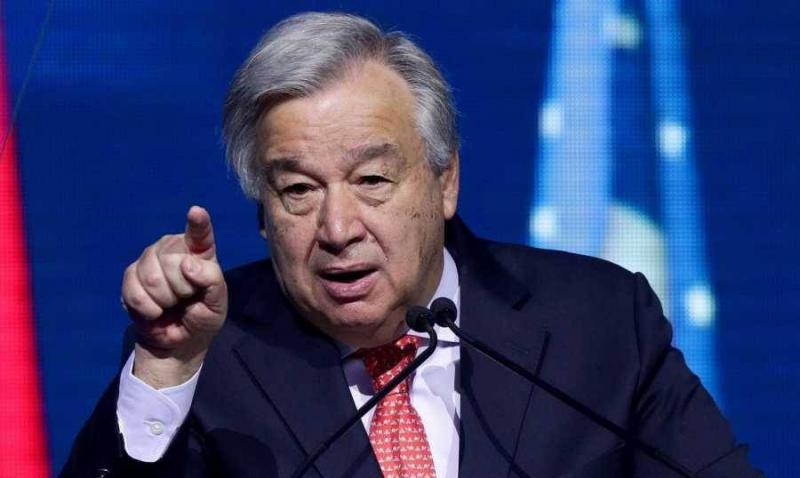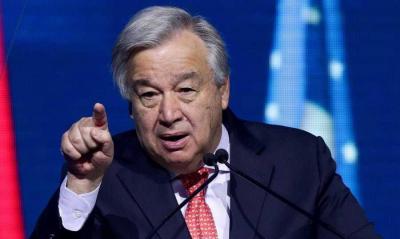The Secretary-General of the United Nations, Antonio Guterres, stated that "nuclear weapons are a deadly reminder of the failure of states to solve problems through dialogue and cooperation," adding: "Let us eliminate these weapons before they eliminate us." In a video message directed to the first meeting of the States Parties to the United Nations Treaty on the Prohibition of Nuclear Weapons held in the Austrian capital, Vienna, he pointed out that "the terrifying lessons of Hiroshima and Nagasaki are fading from memory," referring to the American nuclear bombing of the two Japanese cities during World War II (1939-1945).
Guterres warned that "with over 13,000 nuclear weapons in the world, the prospect of a nuclear conflict - previously unimaginable - has now returned to the realm of possibilities." He added, "In a world dominated by geopolitical tensions and distrust, this is a recipe for annihilation. We cannot allow nuclear weapons possessed by a handful of countries to endanger life on our planet; we must stop knocking on the door of (Armageddon)."
The Secretary-General affirmed that "the Treaty on the Prohibition of Nuclear Weapons is an important step toward our shared ambition of a world free of nuclear weapons." He noted that "the treaty prohibits a comprehensive range of activities related to nuclear weapons, including their development, testing, production, manufacture, acquisition, storage, or any other explosive devices."
On July 7, 2017, this treaty was adopted with the support of 122 countries at the United Nations, following negotiations in which nuclear states, including the United States, Russia, Britain, China, and France, did not participate. The treaty came into force in January 2021, with 86 countries signing it and 65 countries ratifying it. The participating states pledged "never to develop, test, produce, or store nuclear weapons under any circumstances," as well as not to use or threaten to use them or to deploy nuclear weapons on the territories of other states.




